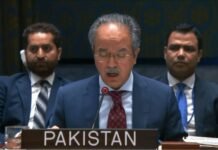Washington, 30 July 2022 (TDI): The Deputy State Secretary of the US, Wendy Sherman met with Nigerien Foreign Minister Massoudou Hassoumi. The two emphasized the importance of continued USA-Niger economic, governance, and security cooperation in the Sahel.
The Deputy State Secretary and Foreign Minister Hassoumi also discussed the need to encourage timely democratic transitions in neighboring countries as well as address food insecurity and development.
U.S.-Niger News: @DeputySecState met with Nigerien Foreign Minister Massoudou Hassoumi. They discussed the need to encourage timely democratic transitions in neighboring countries as well as address food insecurity and development. Readout: https://t.co/scg941Bn8U
— US Africa Media Hub (@AfricaMediaHub) July 29, 2022
Security cooperation and democratic transitions
Over the years, Sahel countries, including Mali, Niger, Mauritania, Burkina Faso, and Chad, have received substantial USA security assistance. This has been under the Trans-Sahara Counterterrorism Partnership (TSCTP) policy instrument.
The TSCTP was established in 2005 to assist partner countries in West and North Africa in addressing domestic terrorist threats.
However, the US has decided to reorient its policy due to the shortcomings of TSCTP, such as the over-spending on militarization over a holistic reconstruction approach.
France will remain the lead on counterterrorism efforts in the Sahel, while the USA will become a regional diplomatic leader.
Through diplomatic leadership, the USA will also emphasize democratic transition within Niger and its neighboring countries.
Food insecurity and economic governance
Throughout history, the Sahel has cycled into periods of famine from unstable agriculture caused by drought. High food prices, conflict, and displacement have driven millions of people into acute hunger and malnutrition.
In 2018, more than 1.3 million children across the Sahel’s six countries required treatment for severe acute malnutrition, a 50 percent spike compared to the year before. The nutrition crisis continues, exacerbated by climate change, Covid-19, and poor economic governance.
The Sahel-Sahara region is therefore viewed as a particularly dangerous zone. It is characterized by the rise of insecurity, political crises, and poorly controlled flows of people, arms, and other licit and illicit goods, which the USA aims to curb.








